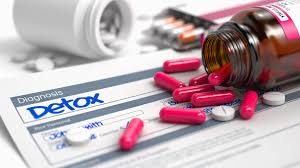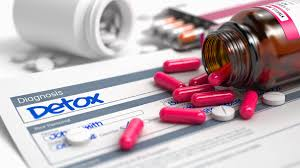Detox Center for Vicodin Withdrawals
Immediate
Placement Available at our Top-Rated Treatment Centers.
Please call us at (855) 410-4488. We work
with most major insurance providers and offer flexible payment
options!
Atrium Addiction Care offers a variety of treatment choices and programs for individuals struggling with drug or alcohol addiction. Our inpatient treatment programs are designed for those who have more severe substance use problems and require 24-hour care. We admit both voluntary and involuntary patients.

Opioid addiction has become a major public health concern in the United States. Vicodin, a prescription opioid and pain relief medication containing hydrocodone and acetaminophen, is one of the most commonly abused opioids. Withdrawal from Vicodin can be uncomfortable and even dangerous without proper medical supervision.
Detox centers are designed to provide patients with the necessary care and support during the withdrawal process. Atrium Addiction Care is a detox center located in North Carolina that specializes in helping individuals struggling with Vicodin addiction. The facility offers a range of services including medically supervised detoxification, counseling, and aftercare planning.
A team of trained professionals work closely with each patient to ease withdrawal symptoms and ensure their physical and emotional needs are met throughout treatment. This article will explore the benefits of seeking help at Atrium Addiction Care for those experiencing Vicodin withdrawals other withdrawal symptoms.
Understanding Vicodin Addiction -north carolina vicodin detox
Vicodin addiction is a complex issue that affects millions of people worldwide. The causes and symptoms of opioid dependence vary from person to person, but some common factors include genetics, environmental influences, mental health conditions, and chronic pain.
Individuals who struggle with Vicodin addiction often experience withdrawal symptoms such as muscle aches, and nausea and vomiting, anxiety, insomnia, and depression.
There are various treatment options available for individuals seeking help for Vicodin addiction. These may include medication-assisted therapy (MAT), behavioral therapies like cognitive-behavioral therapy (CBT) or dialectical behavior therapy (DBT), or support groups like Narcotics Anonymous. It is important to note that there is no universal approach to treating Vicodin addiction since each individual's circumstance differs.
Therefore, it is essential to tailor the treatment plan according to the specific needs of the patient.
Relapse prevention and coping strategies are crucial components in maintaining long-term sobriety after completing a rehab program. Support systems such as family members and friends can provide emotional support during challenging times while also assisting in accountability measures.
In addition, self-care practices such as exercise routines or meditation can aid in reducing stress levels and promoting overall well-being.
Ultimately, recovering from Vicodin addiction requires one last dose of hard work and dedication; however, with proper guidance and support systems in place, individuals can achieve lasting recovery outcomes without relapsing into substance use disorder habits again.
The Importance Of Seeking Help From A Detox Center - withdrawal symptoms - vicodin withdrawal symptoms

Seeking support from a detox center is crucial for individuals struggling with vicodin addiction. It can be challenging to overcome the stigma associated with addiction, but seeking help is an important step towards recovery.
Detox centers provide patients with a safe and supportive environment where they can manage withdrawal symptoms under the supervision of medical professionals. Managing withdrawal symptoms on one's own can be overwhelming and dangerous. Withdrawal symptoms such as nausea, vomiting, diarrhea, muscle pain, and anxiety can be severe and lead to increased risk of relapse if experience withdrawal symptoms are not managed appropriately.
A detox center offers medication-assisted treatment that eases the discomfort of opioid withdrawal symptoms while minimizing the high risk of of relapse. Building a support system is also essential in maintaining sobriety after leaving a detox center. Patients are encouraged to participate in therapy sessions and group activities that promote socialization and fosters long-term relationships among peers who share similar experiences.
Finding hope through this process helps individuals see beyond their struggles and envision a brighter future free from addiction. The following are some of the resources that a detox center offers:
- Medication-assisted treatment: This approach uses medications like buprenorphine or methadone to educe drug cravings during withdrawal.
- Cognitive-behavioral therapy: CBT aims at identifying negative thought patterns that contribute to drug use and replacing them with positive coping mechanisms.
- Group counseling: Participants engage openly about their experiences with substance abuse and learn how others have succeeded in overcoming it.
- Aftercare planning: The program provides resources needed post-treatment, including access to therapists, support groups, and other community-based programs.
Overall, seeking help from a detox center is critical in managing vicodin withdrawals effectively. These facilities offer vital resources necessary for successful recovery by providing medical care, emotional support, building healthy habits & routines throughout rehabilitation programs which will serve as building blocks for lifelong wellness outside of rehab settings.
By taking this first step toward healing oneself internally before addressing external factors around us--like other drugs with stigma attached--individuals begin finding hope and renewed purpose in life.
Atrium Addiction Care's Comprehensive Detox Programs
Atrium Addiction Care offers comprehensive detox programs tailored to each individual's unique needs. With a personalized approach, the center provides holistic care that addresses not only physical symptoms but also mental and emotional aspects of addiction.
The team at Atrium understands that every person's journey with substance abuse is different, which is why they create customized treatment plans for each patient. The supportive environment at Atrium Addiction Care fosters healing and growth.
Patients receive 24/7 medical detox and supervision to ensure their safety during the withdrawal process. In addition medical detox, the staff works closely with patients to address any co-occurring mental health disorders through dual diagnosis treatment.
This integrated approach helps patients achieve long-term recovery by addressing all underlying issues contributing to their addiction. Aftercare planning is an essential component of Atrium's detox programs.
By working collaboratively with patients, the center creates individualized aftercare plans designed to support ongoing sobriety and prevent relapse. These plans may include continued therapy, participation in support groups such as Alcoholics Anonymous or Narcotics Anonymous, and referrals to community resources for ongoing support.
Overall, Atrium Addiction Care's comprehensive detox programs provide patients with the tools they need for lasting recovery from vicodin addiction and other substance use disorders.
Our Team Of Medical Professionals And Addiction Specialists
Having discussed Atrium Addiction Care's comprehensive detox programs, it is important to highlight the team of medical professionals and the addiction treatment specialists who are responsible for overseeing patient care during this critical phase.
The staff at our facility comprises highly trained individuals with extensive experience in treating various forms of substance abuse. We pride ourselves on providing holistic care that addresses not just the physical symptoms but also the underlying psychological and emotional factors that contribute to addiction.
Our team of medical professionals includes licensed physicians, nurses, and psychiatrists who work closely together to ensure that patients receive personalized treatment plans tailored to their unique needs. Each member has specialized qualifications in addiction medicine, mental health, or both, which enables us to offer a multidisciplinary approach to care.
Our goal is to provide a safe and supportive environment where patients can focus on their recovery without distractions or external pressures.
At Atrium Addiction Care, we believe in fostering an atmosphere of trust and empathy between our staff and patients. Our success stories speak for themselves - many of our former clients have gone on to lead fulfilling lives free from the grip of addiction.
By placing patient care at the center of everything we do, we strive each day to make a positive impact on those struggling with substance abuse disorders.
Evidence-Based Treatment Methods - opioid withdrawal

Effective treatment for Vicodin addiction involves an evidence-based approach that combines various methods to address the physical and psychological aspects of the disease.
Psychotherapy techniques are one such method that utilizes different approaches, including cognitive behavioral therapy (CBT), motivational interviewing (MI), and dialectical behavior therapy (DBT). These therapies help individuals identify triggers, develop coping skills, and change negative thought patterns.
Medication-assisted treatment is another evidence-based approach commonly used in detox centers for Vicodin withdrawals. This technique uses medications like methadone or buprenorphine to reduce vicodin withdrawal symptoms and cravings while also providing patients with a sense of stability during recovery. The use of medication assists patients treatment vicodin withdrawal in maintaining long-term sobriety by decreasing their chances of relapse.
Holistic approaches focus on treating the whole person rather than just addressing specific psychological symptoms as related to drug addiction. Holistic methods may include acupuncture, massage therapy, yoga, meditation, or other alternative treatments that promote wellness and balance in mind, body, and spirit.
Support groups can also provide vital support throughout the recovery process by connecting individuals with others who have faced similar struggles.
In summary, effective treatment for Vicodin withdrawal and addiction requires evidence-based practices that target both physical and emotional health. Psychotherapy techniques such as CBT, MI, and DBT offer strategies to manage triggers and create positive changes within clients' lives through therapeutic interventions. Medication-assisted treatment provides medical intervention alongside psychotherapeutic care resulting in decreased vicodin withdrawal and symptoms/cravings thereby increasing success rates over time. Holistic modalities complement traditional approaches promoting overall well-being which supports successful recoveries from substance abuse disorders. Finally, support groups serve as invaluable resources where individuals share stories about triumphs/failures – offering hope/encouragement toward living healthier lifestyles beyond active drug dependence/addiction issues!
Achieving Long-Term Recovery And A Brighter Future

Overcoming obstacles is a crucial part of achieving long-term recovery from Vicodin addiction. It is essential to recognize that the journey towards recovery from vicodin abuse may not always be easy, and there will undoubtedly be setbacks along the way. However, having the determination to overcome these hurdles and continuing on with one's recovery plan can lead to lasting success.
Building resilience is another important aspect of achieving long-term recovery. This involves developing coping mechanisms for dealing with triggers or difficult situations without turning to substance use as a solution. Resilience can be built through therapy, mindfulness practices, and other techniques aimed at improving emotional regulation skills.
Creating a support system is also critical in maintaining sobriety and building a brighter future. Having individuals who understand what you are going through and provide encouragement and accountability can make all the difference in staying committed to your recovery goals. Support systems can include family members, friends, therapists, or even fellow recovering addicts.
Developing healthy habits such as regular exercise, balanced nutrition, and adequate sleep can aid in physical healing during the early stages of the withdrawal syndrome while promoting overall wellness over an extended period of time.
Finally, finding purpose beyond substance use can help create meaningful motivations for remaining sober. Engaging in hobbies or volunteer work that aligns with personal values can offer fulfillment and contribute positively to mental health.
In conclusion, overcoming obstacles, building resilience, creating a support system, developing healthy habits, and finding purpose are key components in achieving long-term recovery from Vicodin addiction. While it may not always be an easy road ahead, committing oneself to these principles provides a solid foundation for sustained sobriety and ultimately leads to a brighter future free from substance abuse.
Conclusion
Vicodin addiction can be a dangerous and challenging disorder to overcome. Seeking help from a detox center is crucial for individuals struggling with severe symptoms of this severe pain and addiction.
Atrium Addiction Care offers comprehensive drug detox programs that are designed to address the physical, emotional, and psychological aspects of common Vicodin withdrawal symptoms. Our team of medical professionals and addiction specialists utilize evidence-based treatment methods in order to provide our clients with the best chance at achieving long-term recovery.
By focusing on individual needs and goals, we work towards helping clients build a brighter future free from substance abuse. If you or someone you know is struggling with Vicodin addiction, contact Atrium Addiction Care today to learn more about how our detox programs can help pave the way towards lasting success and well-being.
